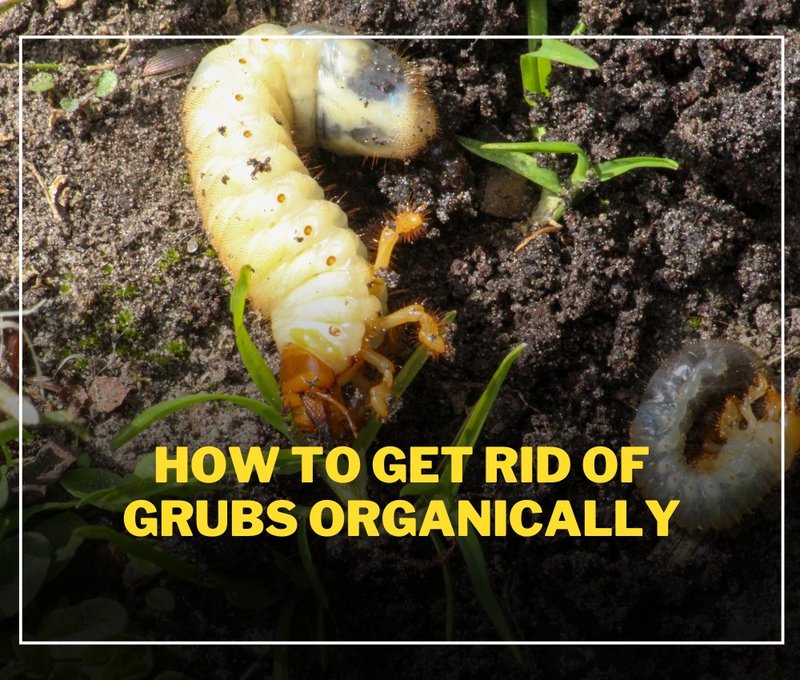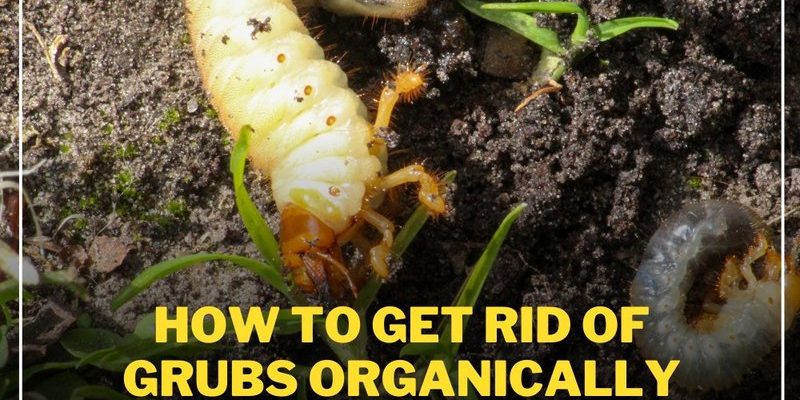
Now, you might be wondering about the best ways to control grub worms without relying on harsh chemicals that could harm your garden’s ecosystem. Luckily, there are plenty of organic methods you can use. Think of it like inviting natural helpers to your garden party instead of those guests that just won’t leave. By using organic solutions, you’re not only protecting your garden but also fostering a healthier environment. Let’s dive into some tried-and-true organic methods to control grub worms!
Understanding Grub Worms
Before we jump into the solutions, it’s critical to understand what you’re dealing with. Grub worms are typically the larvae of beetles like the Japanese beetle, June bug, or other pest varieties. They can be white or off-white, and they curl up when disturbed. If you notice patches of dead grass, especially in late summer or early fall, those little guys are probably the reason behind that sad sight.
Grubs love to feast on the roots of your prized grass and other plants, which can lead to bigger problems if left unchecked. They thrive in warm, moist environments and can produce multiple generations in a single season. So, addressing the problem early can save you a lot of heartache down the road.
One important thing to note is that not all grubs are bad; some play a role in composting and enriching the soil. The trick is finding a balance that allows beneficial insects to thrive while keeping the harmful ones in check.
Encourage Beneficial Nematodes
You may not have heard of nematodes, but these microscopic, worm-like creatures are your garden’s secret allies against grub worms. Available in various species, beneficial nematodes target grubs by invading them and releasing bacteria that kill them. Think of them as nature’s tiny assassins!
To introduce nematodes to your garden, you’ll want to:
- Choose the right type. Steinernema and Heterorhabditis are popular choices.
- Apply them in the evening when the soil is moist. This increases their survival rate.
- Follow the package instructions for proper application rates.
Once they’re in the soil, these nematodes can multiply and help control the grub population. Just remember, they do need some moisture to thrive, so watering your garden after application is key!
Utilize Diatomaceous Earth
If you haven’t discovered diatomaceous earth (DE) yet, it’s worth considering for your grub control strategy. Made from tiny fossilized algae, DE is a natural product that can help you combat various pests, including grubs. It works by piercing the exoskeletons of insects, causing them to dehydrate and die. It’s like sending grubs on a one-way trip to nowhere!
To use diatomaceous earth effectively, follow these steps:
- Sprinkle a thin layer over the affected areas of your garden or lawn.
- Make sure the area is dry, as moisture can lessen its effectiveness.
- Reapply after heavy rain or watering.
Keep in mind, while DE is safe for humans and pets, it can harm beneficial insects as well, so be strategic about where you apply it.
Implement Natural Predators
Another organic method to keep grub worms in check is to invite natural predators into your garden. Birds, toads, and certain insects like beetles will feast on grubs, keeping their numbers down without you lifting a finger. It’s like hosting a dinner party for nature’s pest control team!
To attract these helpful critters:
- Provide shelter, like birdhouses or rocks, where toads can hide.
- Plant flowers that attract beneficial insects, such as ladybugs and parasitic wasps, which can also help manage grub populations.
- Water your garden regularly to support a healthy ecosystem.
By creating a balanced environment, you’ll notice fewer grubs while enhancing your garden’s overall health.
Use Organic Deterrents
Have you ever thought about using the power of smells to repel pests? Certain natural products can deter adult beetles from laying eggs in your lawn. Here are a couple of organic deterrents you might consider:
- Neem oil: Derived from the seeds of the neem tree, this oil disrupts the growth and reproduction of insects. Mix it with water and spray it on your lawn as a preventative measure.
- Garlic spray: The strong scent of garlic can repel beetles. Combine garlic with water and a few drops of soap to make an effective spray.
Apply these deterrents regularly, especially during times when beetles are active, to help keep grub populations under control.
Practice Healthy Lawn Care
Sometimes, the best defense is a good offense. Maintaining a healthy lawn can make it less susceptible to pests like grub worms. Here are some simple steps to ensure your grass is thriving:
- Water deeply but infrequently: This encourages deep root growth, making your grass less vulnerable to pests.
- Fertilize with organic options: Using compost or organic fertilizers can improve soil health, fostering strong plants.
- Keep your lawn mowed: Regular mowing helps promote growth and makes it harder for grubs to thrive.
By nurturing your grass and plants, you’re creating a less inviting environment for those troublesome grubs.
Controlling grub worms doesn’t have to be a daunting task. With these organic methods, you can take a proactive approach to protect your garden and lawn without the need for harsh chemicals. By understanding the little invaders, introducing beneficial nematodes, utilizing diatomaceous earth, encouraging natural predators, using organic deterrents, and practicing healthy lawn care, you can create an environment that’s inhospitable to grubs and welcoming to plants.
It’s all about balance and working with nature, so think of yourself as the gardener who not only nurtures but also protects. Your garden will thrive, and you’ll enjoy the process of keeping those pesky grub worms at bay!

